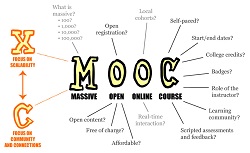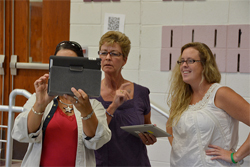
Mark is the Principal of the Berkhamsted Schools Group, Herts, UK. He is a member of both the GSA and HMC and is a Governor of the Wren Academy in Barnet.
Are too many students given the impression that university is the only option? Mark Steed returns to Innovate My School, and discusses a great alternative to higher education.

There are many reasons for going to university but arguably the most important three reasons are:
British universities have had it good for a long time, with successive Governments encouraging ever greater student numbers, but I suspect that the tide is about to turn.
There was a time when going to university was a privilege for a minority that was earned by gaining a good A-level grades and was paid for by the Government, who saw fit to invest in our 'brightest and best'. Those days are gone. Universities are now businesses operating in a competitive market place and they are far from free. According to the National Union of Students the true cost of being a student outside London is £22,189 each academic year (£10,133 for course costs £12,056 for living costs - for the full breakdown of these figures see the
Today's undergraduates are likely to leave university with £50,000+ debt (BBC Website: 'Average UK student debts 'could hit £53,000' 12/08/11).
Drawing from his experience as a Headteacher, Mark Steed describes the main impacts that ICT and the internet is having on education in schools, from the benefits of 'anywhere, anytime' learning and increased student collaboration, to the burdens of keeping students safe online and regulating access to the internet.

Great claims have been made over the past twenty years about the impact that ICT would have on teaching and learning, most of which only succeeded in disappointing.
However, at long last, the combination of reliable ICT networks, affordable equipment, innovative educational software and an increasingly ICT-literate body of teachers means that we are beginning to see ICT making a real difference to the day-to-day education in independent schools.
The impact of new technologies is being seen in every area of school life: academic, pastoral, co-curricular and in school administration.
Martini Learning - Widespread access to new technologies has been one of the most important catalysts of the shift in emphasis from classrooms being about teaching, to them being about learning.

There is a real danger that iPads are going to be the latest in a long line of products that schools have purchased more because of their marketing impact than their educational use.
Grown-ups love iPads, which means parents love iPads. Parents love the idea of having had an iPad at school. Parents are undoubtedly taken in by the iPad-loving school: "The British School in Paris Prep School has issued iPads to every pupil from age 3! what a forward-looking school!" So, let's buy some iPads! Parents will love them!
A word of caution: we've been here before.
Photo credit: kjarrett

When a small, free-standing prep school merges with a much larger school or group, the greatest challenge is winning over the “hearts and minds” of the key interest groups.
The Governors of a small, free-standing prep school (or the owners in the case of a proprietorial school) are in all likelihood all too aware of their predicament. Governors often feel the weight of history. They are bound by the tradition that they received, and have a duty, within what is possible, to ensure that the school is passed on to their successors in good shape. Inevitably some will see merger as a failure on their part; others will take the pragmatic view that it is the only way to see the school move forward. The danger here is that they can all too often hesitate and not seize the moment before them.

A community-driven platform for showcasing the latest innovations and voices in schools
Pioneer House
North Road
Ellesmere Port
CH65 1AD
United Kingdom